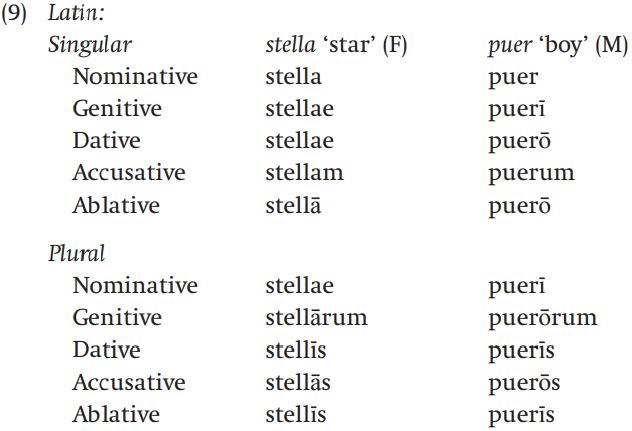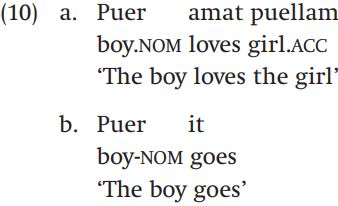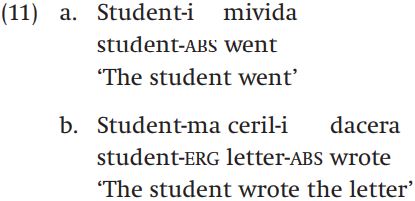

Grammar


Tenses


Present

Present Simple

Present Continuous

Present Perfect

Present Perfect Continuous


Past

Past Simple

Past Continuous

Past Perfect

Past Perfect Continuous


Future

Future Simple

Future Continuous

Future Perfect

Future Perfect Continuous


Parts Of Speech


Nouns

Countable and uncountable nouns

Verbal nouns

Singular and Plural nouns

Proper nouns

Nouns gender

Nouns definition

Concrete nouns

Abstract nouns

Common nouns

Collective nouns

Definition Of Nouns

Animate and Inanimate nouns

Nouns


Verbs

Stative and dynamic verbs

Finite and nonfinite verbs

To be verbs

Transitive and intransitive verbs

Auxiliary verbs

Modal verbs

Regular and irregular verbs

Action verbs

Verbs


Adverbs

Relative adverbs

Interrogative adverbs

Adverbs of time

Adverbs of place

Adverbs of reason

Adverbs of quantity

Adverbs of manner

Adverbs of frequency

Adverbs of affirmation

Adverbs


Adjectives

Quantitative adjective

Proper adjective

Possessive adjective

Numeral adjective

Interrogative adjective

Distributive adjective

Descriptive adjective

Demonstrative adjective


Pronouns

Subject pronoun

Relative pronoun

Reflexive pronoun

Reciprocal pronoun

Possessive pronoun

Personal pronoun

Interrogative pronoun

Indefinite pronoun

Emphatic pronoun

Distributive pronoun

Demonstrative pronoun

Pronouns


Pre Position


Preposition by function

Time preposition

Reason preposition

Possession preposition

Place preposition

Phrases preposition

Origin preposition

Measure preposition

Direction preposition

Contrast preposition

Agent preposition


Preposition by construction

Simple preposition

Phrase preposition

Double preposition

Compound preposition

prepositions


Conjunctions

Subordinating conjunction

Correlative conjunction

Coordinating conjunction

Conjunctive adverbs

conjunctions


Interjections

Express calling interjection

Phrases

Sentences


Grammar Rules

Passive and Active

Preference

Requests and offers

wishes

Be used to

Some and any

Could have done

Describing people

Giving advices

Possession

Comparative and superlative

Giving Reason

Making Suggestions

Apologizing

Forming questions

Since and for

Directions

Obligation

Adverbials

invitation

Articles

Imaginary condition

Zero conditional

First conditional

Second conditional

Third conditional

Reported speech

Demonstratives

Determiners


Linguistics

Phonetics

Phonology

Linguistics fields

Syntax

Morphology

Semantics

pragmatics

History

Writing

Grammar

Phonetics and Phonology

Semiotics


Reading Comprehension

Elementary

Intermediate

Advanced


Teaching Methods

Teaching Strategies

Assessment
Case
المؤلف:
Rochelle Lieber
المصدر:
Introducing Morphology
الجزء والصفحة:
92-6
20-1-2022
1399
Case
Case is another grammatical category that may affect nouns (or whole noun phrases). In languages that employ the inflectional category of case, nouns are distinguished on the basis of how they are deployed in sentences, for example, whether they function as subject, direct object, indirect object, as a location, time, or instrument, or as the object of a preposition. In Latin, for example, nouns must be inflected in one of five cases, with singular and plural forms for each case:

The nominative case forms are used for the subject of the sentence. Accusative is generally used for the direct object and dative for the indirect object. Genitive is used for the possessor (for example, the boy’s shirt). Ablative is used for the objects of prepositions (for example, cum ‘with’, dē ‘from’), although some prepositions take objects in the accusative case (ad ‘to’, post ‘after’).
Latin displays what is commonly called a nominative/accusative case system. In this sort of system, subjects of verbs are nominative, whether the verbs are transitive (that is, they take an object) or intransitive (they don’t take an object):

Less frequent is a kind of case marking system called an ergative/absolutive system. In this kind of system, the subject of a transitive verb gets a case called the ergative. The subject of an intransitive verb gets a case called the absolutive, which is also the case used for the direct object of a transitive verb. The examples in (11) from Georgian illustrate an ergativeabsolutive case marking system .

You can see the two systems compared schematically in (12):

Ergative/absolutive case systems are less frequent in the languages of the world than nominative/accusative systems, but they do occur in the PamaNyungan languages of Australia (for example Dyirbal), in the Tsimshianic languages of North America (e.g. Sm’algyax, spoken in British Columbia), in the language isolate Basque, as well as in Caucasian languages like Georgian.
 الاكثر قراءة في Morphology
الاكثر قراءة في Morphology
 اخر الاخبار
اخر الاخبار
اخبار العتبة العباسية المقدسة

الآخبار الصحية















 قسم الشؤون الفكرية يصدر كتاباً يوثق تاريخ السدانة في العتبة العباسية المقدسة
قسم الشؤون الفكرية يصدر كتاباً يوثق تاريخ السدانة في العتبة العباسية المقدسة "المهمة".. إصدار قصصي يوثّق القصص الفائزة في مسابقة فتوى الدفاع المقدسة للقصة القصيرة
"المهمة".. إصدار قصصي يوثّق القصص الفائزة في مسابقة فتوى الدفاع المقدسة للقصة القصيرة (نوافذ).. إصدار أدبي يوثق القصص الفائزة في مسابقة الإمام العسكري (عليه السلام)
(نوافذ).. إصدار أدبي يوثق القصص الفائزة في مسابقة الإمام العسكري (عليه السلام)


















